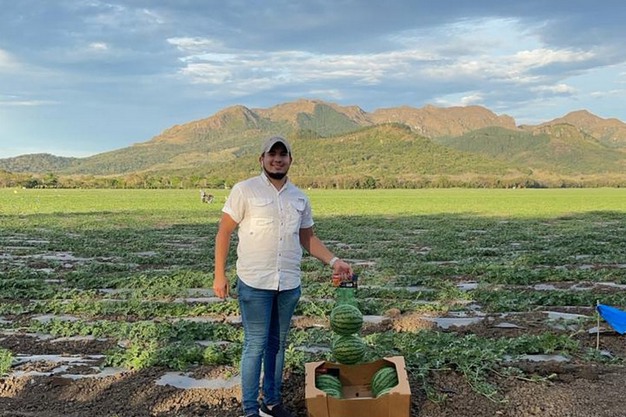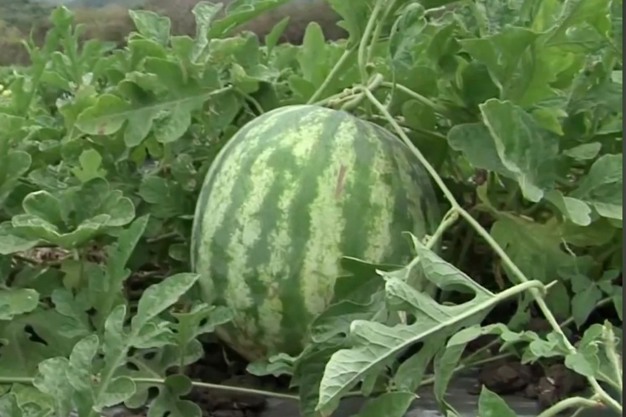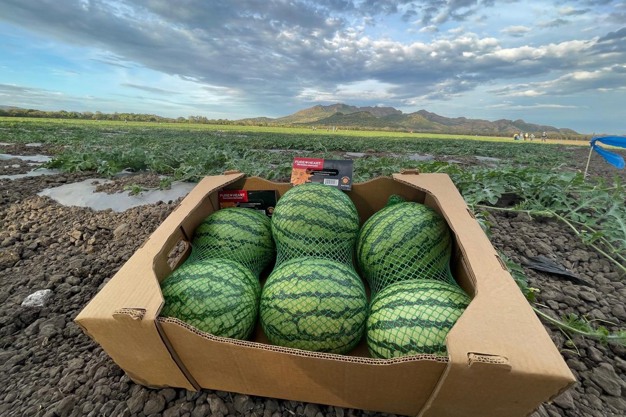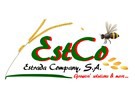Estrada Company S.A., a Panamanian family business with more than 26 years of experience as a watermelon exporter, has managed to consolidate its position in an increasingly competitive European market, despite the logistical and climatic challenges the sector is facing. General Manager Jasser Estrada outlined the history of the company and its prospects for the future.
Founded in 1998 under the name Fenix Business Inc., Estrada Company has grown and adapted its strategy over the years. "Melon and watermelon production is still our main activity, but we are also producing rice and green peppers for the local market," says Estrada. However, the company decided to focus on watermelons due to the weather-related challenges of other more sensitive crops, such as melons.

The European market is the main destination for Estrada Company's watermelons. "We compete mainly with Brazil and Costa Rica, and in Europe with Morocco and Spain," says Estrada. "We have a short marketing period, of just two months, so it is crucial to reach the European market on time to ensure good prices." In this sense, logistical problems, especially related to the availability of space on cargo ships, have been a constant challenge, aggravated in recent years following the pandemic.
This year, Estrada Company plans to export 200 containers of watermelon to Europe, which requires at least 150 hectares of production area. However, the company is looking to become more than just a mere supplier. "This year, we are going to take a big step forward by trying to sell our production directly to the European retail," says Estrada. This strategy aims to reduce dependence on intermediaries and improve profitability, a significant challenge in a market as volatile as the watermelon one, where uncontrollable weather fluctuations can drastically affect consumption habits and have a direct impact on the demand and, therefore, prices.
Estrada says that watermelon prices in Europe are volatile and depend on factors such as the supply at destination and weather-dependent consumption habits. Although projections can be made, prices can be drastically affected by real market conditions.

The company works with fixed or minimum guaranteed prices, which ensure a basic income to cover costs, especially in times of uncertainty. Estrada says that a box of watermelons can fetch very high prices if it manages to enter the European market at the right time.
The range of watermelon varieties exported by Estrada Company includes the seeded Quetzalí and the seedless Joya, with Germany as the main consumer of the seeded variety. The company is also considering new opportunities, such as the production of mini watermelons, for which there is growing interest in the European market.
The quality of the product is essential to remain competitive in Europe.
"To obtain the quality we want, we work with grafted watermelons, use the right technology and rely on our extensive experience in watermelon production. Estrada Company complies with strict international standards and has certifications such as GlobalG.A.P., SMETA, GlobalG.A.P. GRASP and Rainforest Alliance. In Europe, you cannot sell a single box of watermelons if it is not certified," says Estrada, underlining the importance of these certifications for accessing major markets.

On an economic level, watermelon exports remain vital for Estrada Company and for Panama. "We have created more than 600 direct jobs and 1,200 indirect ones," said Estrada, highlighting the company's impact on the local economy. However, the sustainability of the business depends, to a large extent, on government incentives to cover part of the production costs, and especially, to stay at the forefront of innovation with new agricultural technologies.
Estrada Company has started diversifying its supply, looking into the production and export of new products, such as ginger and, soon, Tahiti limes.
They have conducted a trial with the export of a ginger container to the United States. This diversification is part of the company's strategy to expand its product range and reduce dependence on watermelons.
For more information:
Estrada Company S.A.
Nueva Gorgona, Chame. Finca La Faustina
Panama
Jasser Estrada
Tel.: +507 61010337
Tel.: +507 64071015
estradacompany@estco.com.pa
https://estradacompany.weebly.com
